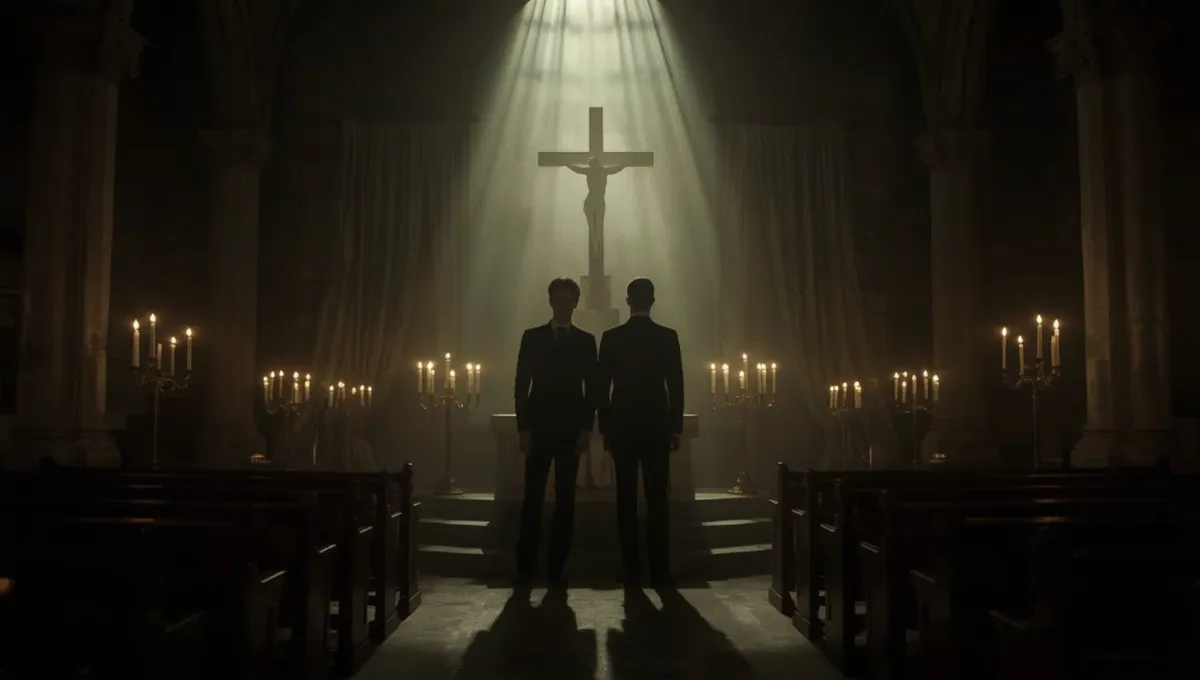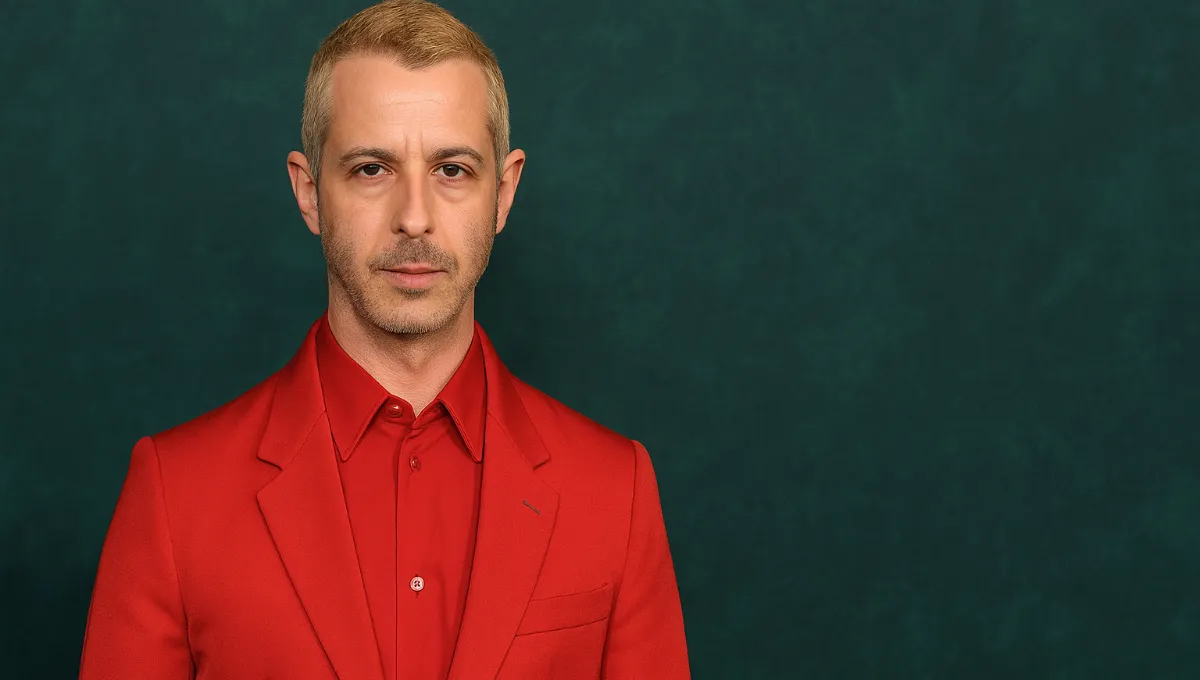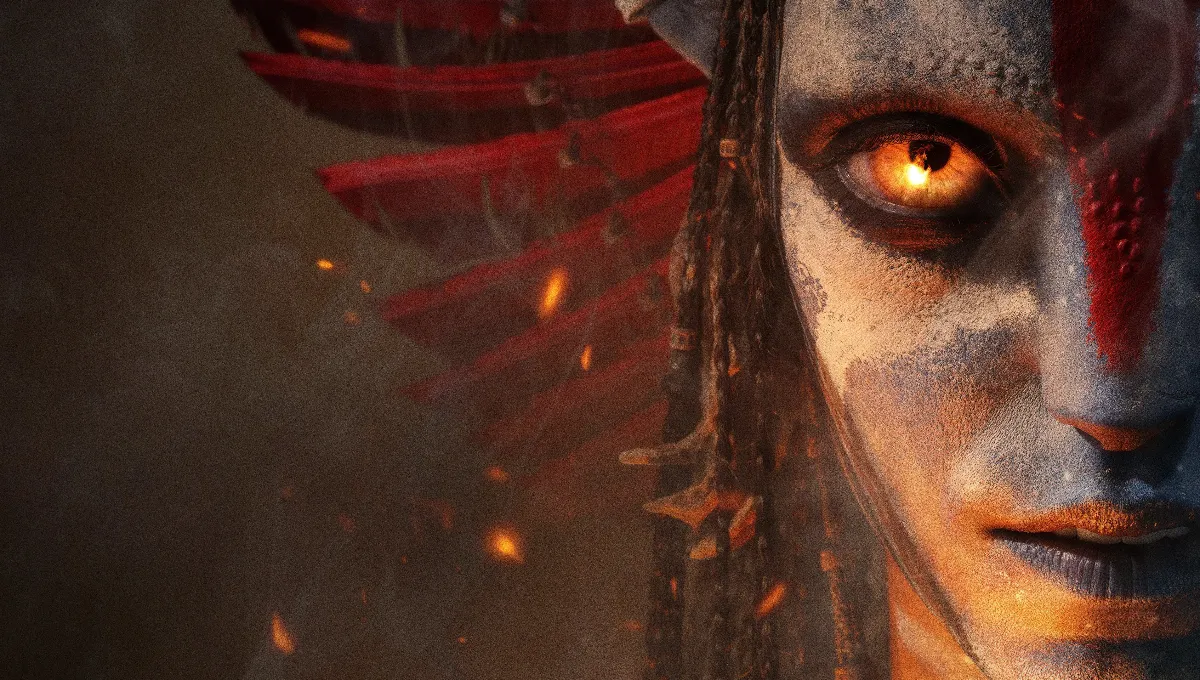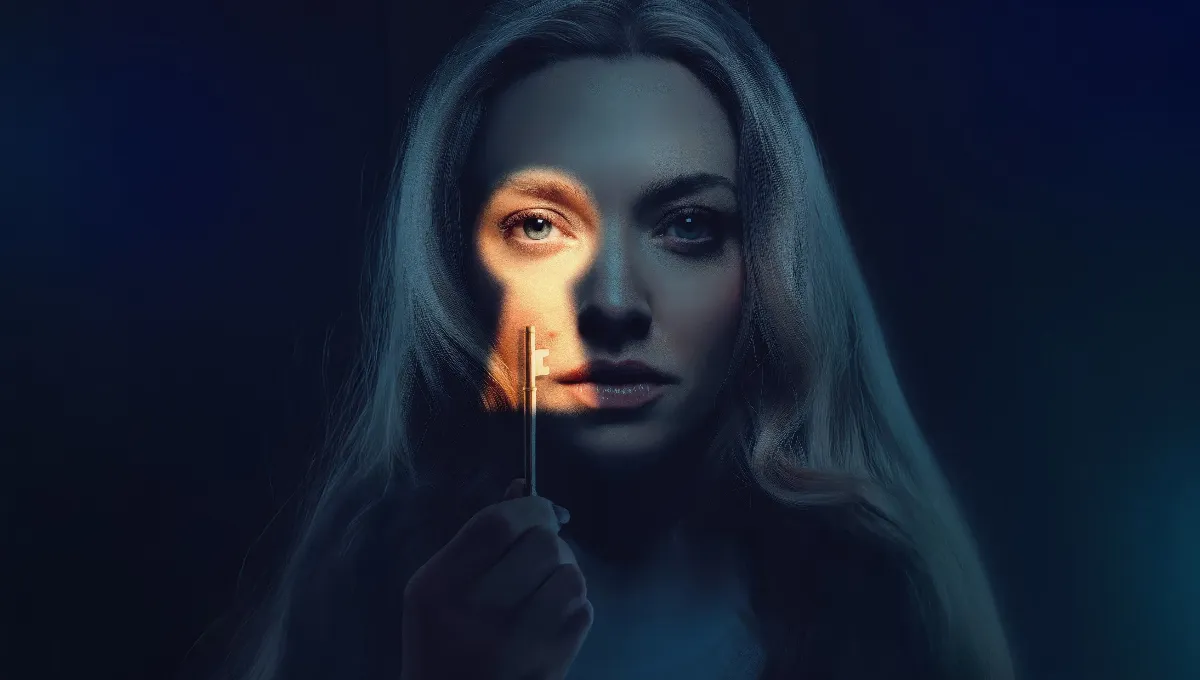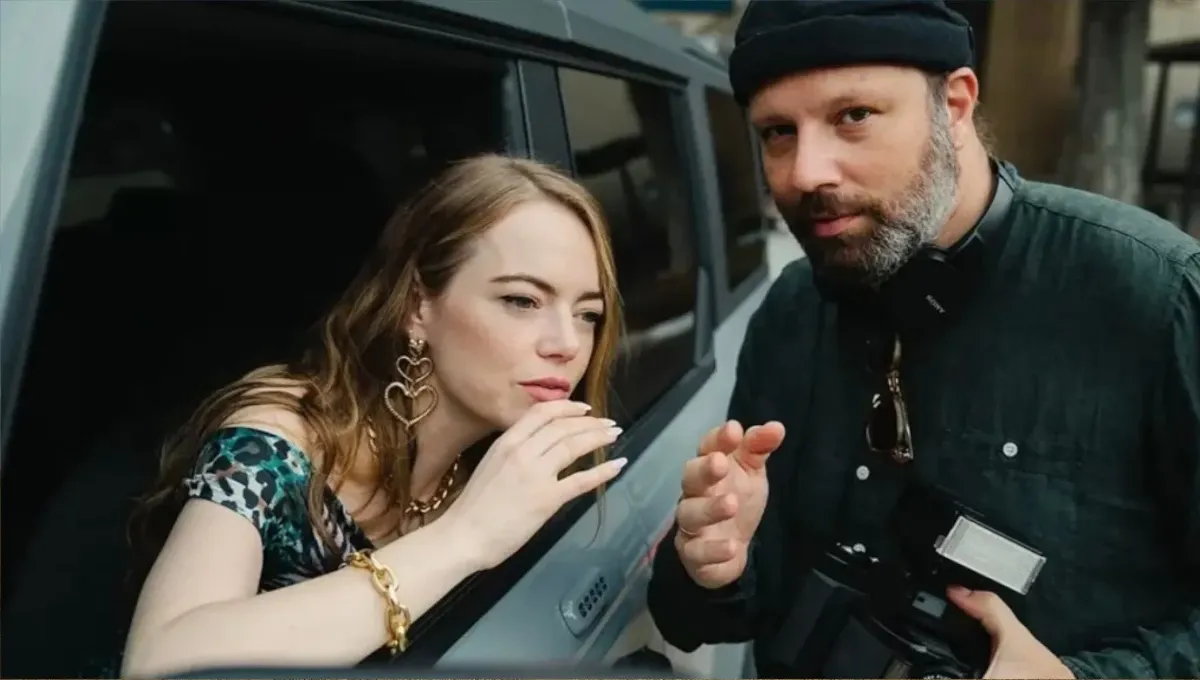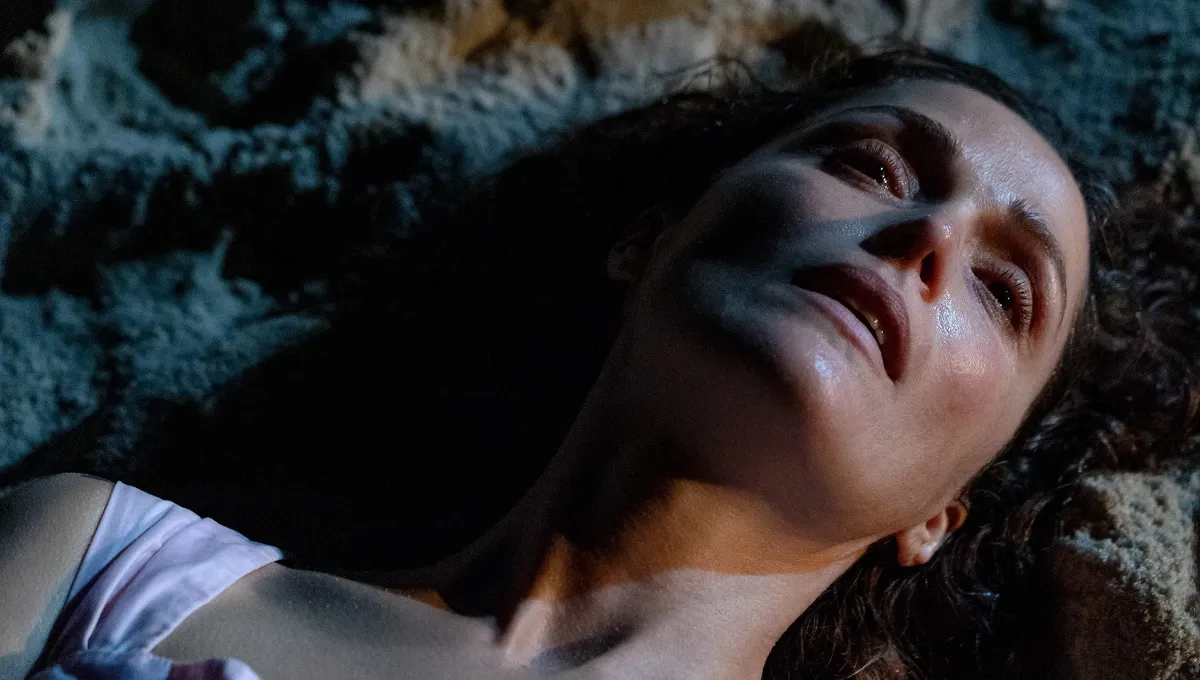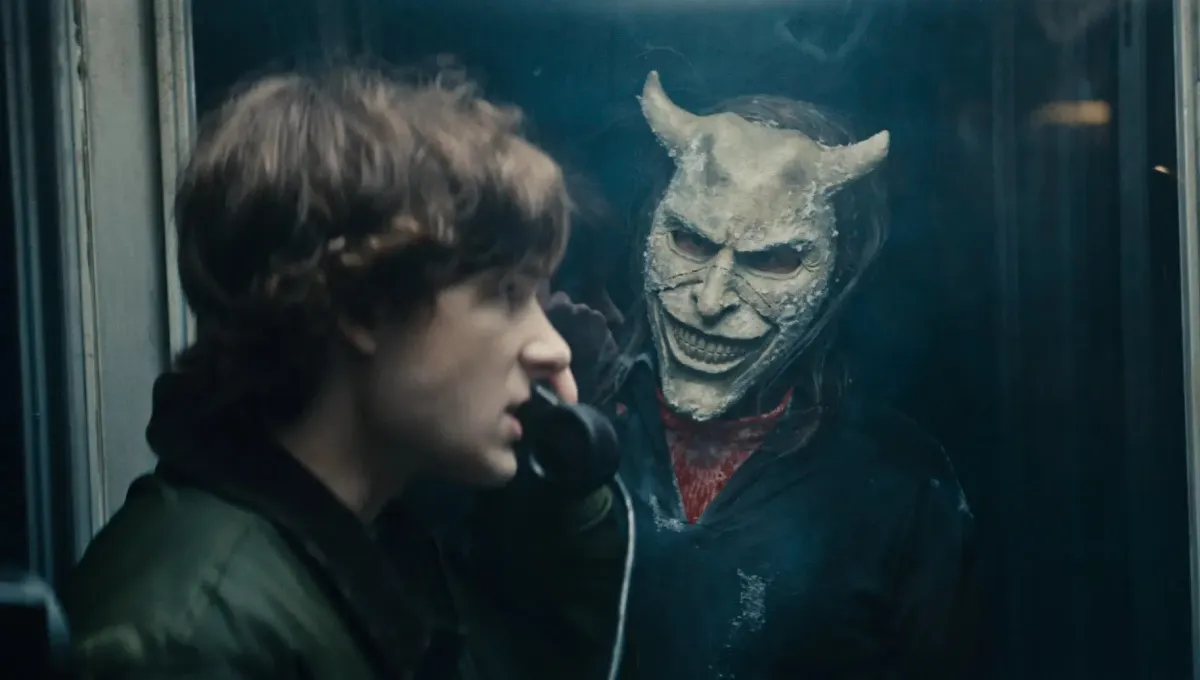Horror has always thrived on the primal. What happens when the safety of home transforms into a nightmare, when love and familiarity become the very things that kill us? Primate (2026) takes that fear and makes it personal.
Directed and co-written by Johannes Roberts (47 Meters Down, Resident Evil: Welcome to Raccoon City), and written with longtime collaborator Ernest Riera, this lean, nerve-shredding survival horror traps a group of friends beside a swimming pool as their once-beloved pet chimpanzee descends into rabid violence.
Premiering at Fantastic Fest 2025 and hitting U.S. theaters on January 9, 2026 through Paramount Pictures, Primate is being hailed as the “Cujo of a new generation” — a creature feature where terror feels heartbreakingly human.
A Familiar Monster
The story begins in the warmth of home. College student Lucy (Johnny Sequoyah) returns to visit her family for summer break. Waiting for her isn’t just her father Adam (Troy Kotsur) and best friend Hannah (Jessica Alexander), but also Ben, the family’s cherished chimpanzee — raised from infancy, treated like a sibling, almost human.
During a sun-drenched pool party, something terrible happens. Ben is bitten by a stray animal carrying rabies. Within hours, the playful companion turns unpredictable. What starts as mild agitation becomes unbridled savagery. As the infection takes hold, Ben’s intelligence makes him far more dangerous than any beast the genre has seen in years.
Lucy, Hannah, and their friends barricade themselves in and around the pool area, building makeshift defenses while the sound of Ben’s guttural shrieks echoes through the night. The setting becomes a prison — chlorinated water reflecting fear, blood, and guilt.
The Cast Behind the Chaos
The ensemble elevates Primate beyond B-movie expectations.
-
Johnny Sequoyah (Dexter: New Blood) anchors the film as Lucy, torn between love and survival. Her emotional range — from nostalgia to horror — gives the film its heartbeat.
-
Troy Kotsur, fresh off his Academy Award for CODA, brings gravitas to Adam, a father forced to watch his “other child” become a killer.
-
Jessica Alexander (Glass Onion, A Banquet) plays Hannah, the rational friend who becomes the voice of survival.
-
Supporting performances by Victoria Wyant, Gia Hunter, Benjamin Cheng, Charlie Mann, and Tienne Simon round out the friend group trapped in the siege.
-
Miguel Hernando Torres Umba, a physical actor known for motion-capture work, portrays Ben, the chimp — a terrifying blend of movement and emotion that blurs the line between human and beast.
-
Additional cast members include Kae Alexander, Amina Abdi, and Albert Magashi, whose appearances expand the film’s world beyond the poolside chaos.
Each character embodies a different reaction to trauma: denial, guilt, rage, and the brutal instinct to survive.
Johannes Roberts Returns to His Element
Roberts has always excelled in confined, high-tension spaces. 47 Meters Down turned the ocean into a cage; The Strangers: Prey at Night brought terror to suburban calm. With Primate, he flips the formula: daylight horror. No haunted house, no shadows — just the bright, cruel sun exposing every wound.
In interviews, Roberts described the film as “a study of empathy turned inside-out.” He and co-writer Ernest Riera wanted to explore what happens when compassion itself becomes lethal — when caring for another creature blinds us to danger.
The film’s tagline — Dangerously close to human — captures this perfectly. Ben’s humanity makes him tragic, not just terrifying.
Creature Design & Realism
Unlike the CGI overload of recent monster flicks, Primate uses a hybrid approach. Most of Ben’s screen time comes from practical suit performance combined with subtle digital enhancements — motion-captured by Miguel Hernando Torres Umba and refined under the supervision of visual-effects lead Benjamin Cheng.
The result is disturbingly believable. Ben’s eyes show recognition; his gestures recall memories of tenderness. When he attacks, it’s not an alien creature striking — it’s family. That emotional conflict fuels the entire film.
Themes: Between Love and Survival
-
Human vs. Animal Instinct
The title Primate doesn’t only refer to the chimpanzee — it refers to us. As the survivors regress into fear and aggression, the question becomes: which species is truly civilized? -
The Collapse of Domestic Safety
Roberts weaponizes the suburban comfort zone: barbecues, pool toys, and sunlight. The result is a visual metaphor for vulnerability hiding under modern life. -
Ethics of Control
Adam’s attempt to raise Ben “like a son” mirrors the human desire to dominate nature through affection. When control fails, love turns into guilt. -
Isolation and Collective Fear
The swimming pool, a symbol of leisure, becomes a fortress. Every splash, every ripple becomes a sound cue of dread — echoing the claustrophobia of Jaws within a suburban microcosm.
Critical Reaction & Festival Buzz
After its Fantastic Fest 2025 debut, Primate received enthusiastic responses from horror critics and fans alike.
Variety called it “a sweaty, unflinching, and heartbreakingly intimate nightmare.” Bloody Disgusting praised its “near-perfect pacing and emotional ferocity.”
Rotten Tomatoes’ early critical consensus hovers around 88%, while IMDb ratings (6.9/10 in preview screenings) show strong viewer anticipation.
Reviewers point out the film’s brevity as a virtue — “tight as a drum at 89 minutes,” wrote The Wrap — and commend Troy Kotsur’s haunting performance as one of the most emotionally charged in a creature film since The Fly.
The Making of a Modern Cult Classic
Development
In 2024, Walter Hamada, former head of DC Films, signed a first-look deal with Paramount to produce horror projects through his 18hz Productions banner. Primate was among the first greenlit, uniting Hamada’s blockbuster discipline with Roberts’ survival-horror instincts.
Filming began in the summer of 2024 in Louisiana, where Roberts built a full-scale pool set on a soundstage to allow continuous underwater and night shoots. The production used custom hydraulic rigs to create the illusion of Ben moving through water — both terrifying and heartbreaking.
Post-Production
Sound design was pivotal. Animal vocalizations were layered with human breathing and distorted laughter to create Ben’s signature shriek — a chilling reminder that he is, indeed, “close to human.”
Composer David Fleming (The Last Voyage of the Demeter) delivered an atmospheric score blending natural percussion with heartbeat-like basslines.
Why Primate Matters in 2026
The horror landscape of 2026 is crowded with exorcisms, found-footage revivals, and supernatural chills. Primate stands apart by returning to physical fear — flesh, bone, and blood. It is horror stripped to instinct, asking audiences to confront their own reflection in a creature’s rage.
It also resonates in an era obsessed with the ethics of AI and animal cognition. The line between human and non-human empathy has never felt thinner. Roberts’ film turns that philosophical debate into something raw and immediate.
Box Office & Future Potential
Analysts predict Primate will open strong for a January release — an estimated $14–17 million domestic debut — buoyed by social-media buzz and its viral trailer views surpassing 20 million in the first week. Its concise runtime and high rewatchability make it ideal for streaming expansion later in 2026.
Paramount insiders hint that if the film performs, a spiritual sequel or anthology entry could follow, exploring “other human-adjacent predators.”
Final Thoughts: Fear with a Pulse
In a world overflowing with digital ghosts and supernatural hauntings, Primate feels alarmingly real. It’s about what happens when empathy becomes blindness, when our attempts to humanize nature reveal the animal within ourselves.
Johannes Roberts crafts a film that is as tragic as it is terrifying — not a monster movie, but a mirror held up to humanity. The creature isn’t evil; it’s infected, confused, and heartbreakingly familiar. That’s what makes Primate so unforgettable.
When Lucy looks into Ben’s eyes during the final act, she’s not seeing a beast — she’s seeing the last trace of love before survival takes over. Few horror films dare to make compassion the enemy. Primate does, and it might just redefine the creature feature for the next decade.
Production Credits
-
Director / Writer: Johannes Roberts
-
Writer: Ernest Riera
-
Producers: Walter Hamada, 18hz Productions
-
Distributor: Paramount Pictures
-
Cast: Johnny Sequoyah, Troy Kotsur, Jessica Alexander, Victoria Wyant, Gia Hunter, Benjamin Cheng, Charlie Mann, Miguel Hernando Torres Umba, Kae Alexander, Tienne Simon, Amina Abdi, Albert Magashi
-
Genre: Horror / Thriller
-
Runtime: 89 minutes
-
U.S. Release: January 9, 2026

Grace Whitmore is a beauty and lifestyle editor at Nestification, exploring the intersection of modern femininity, quiet luxury, and emotional design. Her work focuses on how aesthetics, mindfulness, and self-expression shape today’s idea of calm confidence — where beauty becomes a state of mind.
Based in New York · [email protected]

